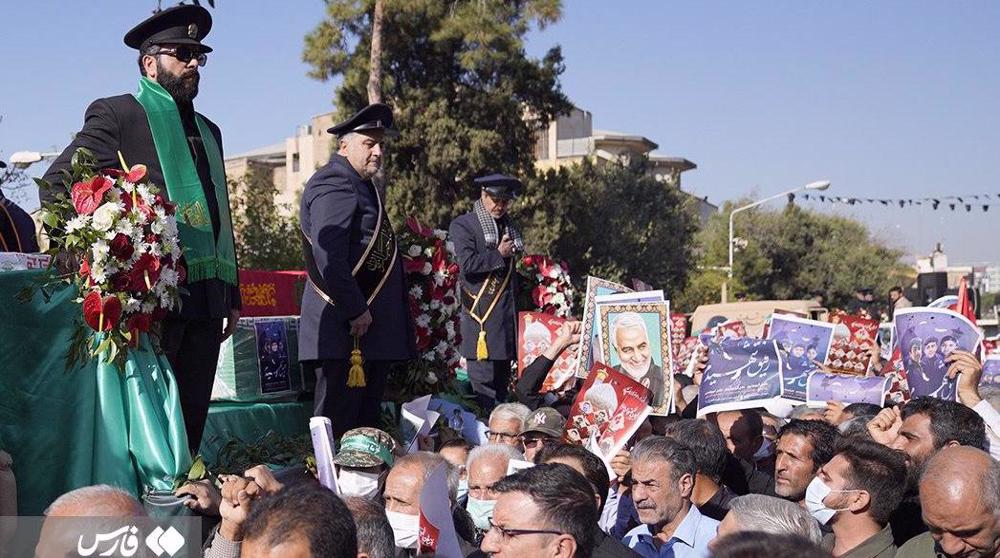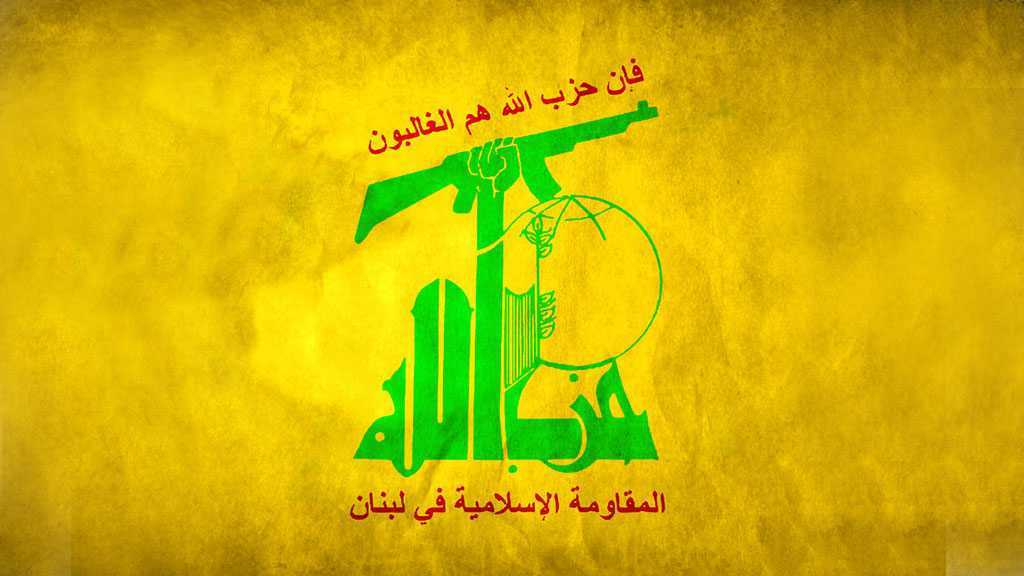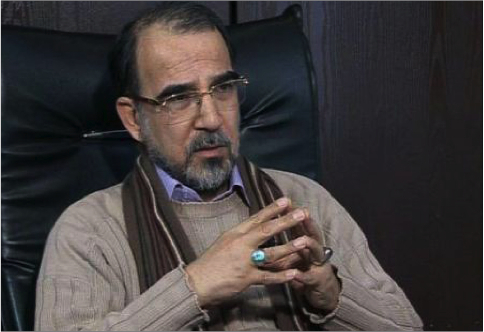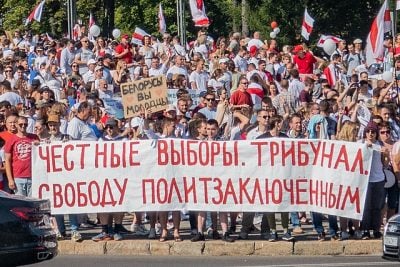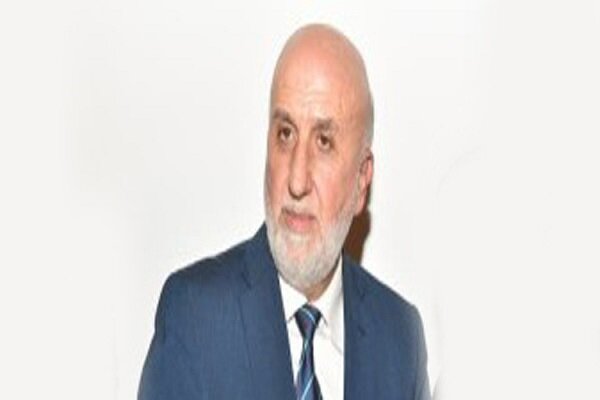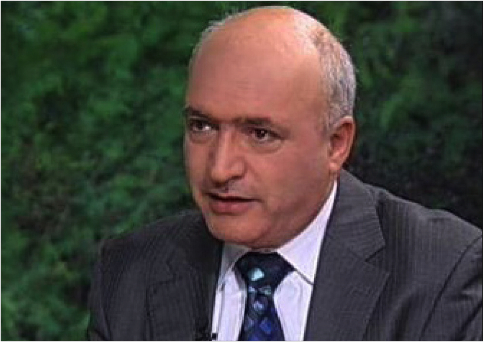November 05, 2021
Foreign Minister Sergey Lavrov’s interview with Rossiya 24, Moscow, November 1, 2021
Question: Not so long ago, you said that Russia would not use ideology-based rules in its international diplomatic practices. What examples can you give to explain this to a layman in matters of politics?
Sergey Lavrov: It’s simple. Ideally, any society should obey generally accepted rules that have proved their efficacy and sensibility. Speaking about international life, the United Nations Charter is a book of collectively and universally coordinated rules. Later, when new members joined the UN, they accepted these rules in their entirety, without any exemptions, because UN membership requires that the Charter be ratified without any reservations. These rules are universal and mandatory for all.
With the age of multipolarity now dawning – and its emergence is an objective fact – new centres of economic growth, financial power and political influence have come into being. The multitude of voices is louder at the UN. A consensus or a vote are required in a situation where new solutions or rules have to be developed based on the UN Charter. In both cases, this work involves conflicting opinions and the need to defend one’s position and prove it is correct. Truth springs from argument and this is what this collective work is all about.
Conscious of the fact that its arguments are increasingly vulnerable because its policy is aimed at slowing down the objective formation of a polycentric world fully in keeping with the UN Charter, the collective West thinks it more beneficial for itself to discuss current issues outside of universal organisations and make arrangements within its inner circle, where there is no one to argue with it. I am referring to the collective West itself and some “docile” countries it invites from time to time. The latter are needed as extras and create a semblance of a process that is wider than a purely Western affair. There are quite a few such examples.
Specifically, they are pushing the idea of a “summit for democracy.” This summit will take place in December at the invitation of US President Joe Biden. To be sure, we will not be invited. Neither are the Chinese on the list of invitees. The list itself is missing as well. Some of our partners are “whispering in our ear” that they have been told to get ready: supposedly an invitation is in the pipeline. Asked, what they would do there, they reply that theirs will be an online address, after which a final statement will be circulated. Can we see it? They promise to show it later. So we have here the “sovereign” and his “vassals.”
The Summit for Democracy seeks to divide people and countries into “democracies” and “non-democracies.” Furthermore, my colleagues from a respected country have told me that they could infer from the invitation they had received that the democratic countries that were invited to attend were also divided into “fully” and “conditionally” democratic. I think the Americans want to have the biggest possible crowd to show that the Washington-led movement has so many followers. Watching who specifically gets invited and in what capacity will be quite amusing. I am certain that there will be attempts to reach out to some of our strategic partners and allies, but I do hope that they will remain faithful to the obligations they have in other frameworks instead of taking part in artificially concocted, one-off unofficial summits.
The same applies to the initiative Germany and France proposed two or three years ago. I am referring to the idea of an Alliance of Multilateralists. Asked, why should it be formed – after all, the United Nations, where all sovereign states are represented, stands at the pinnacle of multilateralism – they gave rather an interesting answer. According to them, there are many conservatives at the United Nations, who hinder the genuine multilateral processes, while they are the “forerunners,” they want to lead the van and show others with their example how to promote multilateralism. But this prompts the question: Where is the “ideal” of multilateralism? Allegedly, it is personified by the European Union, a paragon of “effective multilateralism.” Once again, they understand multilateralism as the need for the rest to accept the Western world’s leadership along with the superiority of Western “values” and other things western. At the same time, multilateralism, as described on the US dollar (E pluribus unum) and as embodied in the United Nations, seems inconvenient, because there is too much diversity for those who want to impose their uniform values everywhere.
Question: Is this a constructive approach?
Sergey Lavrov: Of course, not! Let me reiterate that this is how they understand the serious processes that are unfolding across the world against the backdrop of the emerging multilateralism and multipolarity. The latter, by the way, were conceived by God, for He created all men equal. And this is what the US Constitution says, but they tend to forget its formulas, when it comes to geopolitics.
There are other examples. The Dutch and the British are pushing the idea of a Global Partnership on Artificial Intelligence. Why not do this at UNESCO? Why discuss this outside the organisation that was specifically created for dealing with new scientific achievements and making them available to mankind? There is no reply.
There are several competing partnerships, and the Media Freedom Coalition formed by Canada and Britain is one of them. The French, together with Reporters without Borders, promote the Information and Democracy Partnership. Once again, not everyone is invited to join it. Several years ago, Britain held the Global Conference for Media Freedom.
Question: Russia was not invited to attend, was it?
Sergey Lavrov: At first, there was no invitation, but then we reminded them that if this was a “global forum,” it was right to hear opposing points of views. But they did not invite us all the same.
Examples of this kind are not in short supply. Talking about these matters, there are mechanisms within UNESCO, which is fully legitimate and competent to deal with these issues. However, it gives a voice to others who may have a different view on media freedom compared to that of our Western colleagues. I think that this sets the international community on a path that is quite destructive, just like the attempts to “privatise” the secretariats of international organisations.
The Organisation for the Prohibition of Chemical Weapons (OPCW) is a case in point, since people from Western and NATO countries are fully in control of its Technical Secretariat. The Chemical Weapons Convention (CWC) states that everything must be done by consensus. However, the Technical Secretariat obediently tolerates gross violations of the Convention. The Western countries vote for their decisions, which is completely at odds with the CWC, and claim that executing these is the Secretariat’s duty. By arrogating the right to pinpoint who is to blame for using chemical weapons, the Technical Secretariat takes over the functions of the UN Security Council.
The West has now instructed the Technical Secretariat to crack down on Syria, where many shady things and outright provocations took place over the past years. We exposed them and held news conferences in The Hague, where the OPCW has its headquarters, as well as in New York. We showed that the Technical Secretariat was being manipulated with the help of destructive and extremist NGOs like the White Helmets. I would like to note that we are starting to hear statements along these lines from heads of certain respected organisations. For example, some senior executives of the UNESCO Secretariat have come forward with the initiative to promote “values-based multilateralism.”
Question: And they are the ones who define these values, aren’t they?
Sergey Lavrov: Probably. The UNESCO leadership also represents a Western country and NATO. There is no doubt about this.
We do know that at the end of the day, behind all this talk on building consensus and having regard for the opinion of all countries, the collective West will set the tone. This has already happened more than once. The way the West views “values-based multilateralism” will shape its negotiating position.
At the same time, there is an effort to promote a “human rights-based” approach. If we look at the challenges the world is currently facing, there is security, including food security, as well as ensuring livelihoods and healthcare. This is also related to human rights. The right to life is central to the Universal Declaration of Human Rights, but it is being trampled upon in the most blatant manner, just like the socioeconomic rights. The United States has yet to join the International Covenant on Economic, Social and Cultural Rights, and has only signed the International Covenant on Civil and Political Rights that the West is seeking to emphasise. Lately they have been focusing on the ugliest ways to interpret these rights, including on transgender issues and other abnormal ideas that go against human nature itself.
Question: You mentioned the humanitarian aspect, which is very important. The border crisis in Belarus. Refugees from Syria and other Middle Eastern countries trying to enter the EU are being deported peremptorily. It is a serious crisis, and the problem has grown in scale. It concerns the border with the EU, which claims to respect human rights and the humanitarian rules. Can Russia mediate the settlement of this conflict? Can we influence the situation at all? And would there be any point?
Sergey Lavrov: I don’t think that mediation is needed here. I do not see any violations of international law or obligations by Belarus. I have access to information about these developments, just as all the other stakeholders. According to this information, those who do not want to live in Belarus are trying to enter the EU from the territory of Belarus. Demanding that President Alexander Lukashenko and the Belarusian law enforcement agencies stop this would be contrary to international law, especially humanitarian law. The hysterical claims made in some EU countries that Belarus, supported by Russia, is deliberately encouraging these flows of refugees are unseemly for serious politicians. This means that they are aware of their helplessness, including in terms of international law, which is why they are growing hysterical.
Here is a simple example. You have said that the EU does not want refugees to enter its territory. I believe that it is not the EU but individual countries that do not want this. The situation is different across the EU in terms of the positions of individual countries and regions. There is no unity on this matter. Poland and Lithuania are pushing the refugees eager to enter their territory back to Belarus. I wonder how this is different from the recent developments in Italy. Former Interior Minister Matteo Salvini refused to allow refugees to disembark in Italy. He argued that there were several other EU countries along their route where they could request asylum. Salvini is likely to face trial for endangering the lives of those refugees, who had fled from the dire, catastrophic conditions in their home countries. What is the difference between the behaviour of the Baltic states and Poland and the decision for which the former minister is about to stand trial?
There are many other examples of double standards here, but just take a look at the identity of those refugees fleeing to Europe. They are Syrians, Iraqis and, recently, Afghans. People from the Sahel-Sahara region in Africa are trying to enter Europe via Libya. As we list the countries from which illegal migrants are exporting instability, we should not forget the reason behind the collapse of their home countries. This collapse has been brought about by Western adventurism. A case in point is the US adventure in Iraq, where tens of thousands of NATO troops and contingents of other countries eager to please Washington were later stationed in a cover-up ploy . Look at the aggression against Libya, and the failure of the 20-year-long war trumpeted as a mission to restore peace in Afghanistan. They attempted to do the same in Syria. As a result, several million people have been uprooted and are now trying to enter Europe from Lebanon, Jordan and Turkey. This is our Western partners’ style. They regard any situation from a historical and chronological angle that suits them best. They launched devastating bombing attacks on Libya and Iraq. But after both countries were reduced to ruins, they urged everyone to assume a shared responsibility for the fate of refugees. We asked, why this should be a “shared responsibility?”After all, it was them who created the problem in the first place. They replied: “Let bygones be bygones.” There is no point looking back, they have awakened to the problem, and now it rests with us. Ukraine is another remarkable example of the logic of forgetting historical embarrassments.
Question: I would be remiss not to ask you about Ukraine. The situation there is escalating. Not so long ago, an officer, a Russian citizen,from the Joint Centre for Control and Coordination (JCCC) on Ceasefire and Stabilisation in Southeastern Ukraine was detained (in fact, kidnapped) on the demarcation line. The Ukrainian military have become increasingly active in the grey zone. With that in mind, how much longer can the Normandy format dialogue continue? Is a ministerial meeting being planned? How productive will this dialogue be?
Sergey Lavrov: I would like to revisit the diplomatic tactics of cutting off inconvenient historical eras and periods. How did it all begin? In our exchanges with our German or French colleagues who co-founded the Normandy format and the February 2015 Minsk agreements, they unfailingly maintain a “constructive ambiguity” with regard to who must comply with the Minsk agreements. We keep telling them: What ambiguity is there? Here, it is clearly written: Kiev, Donetsk and Lugansk must enter into consultations and agree on a special status, an amnesty and elections under the auspices of the OSCE. This is clearly stated there. They say they know who plays the decisive role there. We reply that we do not know who else plays the decisive role there except the parties whom the UN Security Council has obliged to act upon what they signed. To their claims that we “annexed” Crimea, we say that, first, we did not annex Crimea, but rather responded to the request of the Crimean people, who had come under a direct threat of destruction. I remember very well the Right Sector leaders saying that Russians should be expelled from Crimea, because they would never speak, think, or write in Ukrainian. Everyone back then was telling me that it was a figure of speech. It was not. Recently, President of Ukraine Vladimir Zelensky confirmed this when he said: If you think you are Russian, go to Russia. This is exactly the ideology proclaimed by the Right Sector immediately after the EU-guaranteed settlement document had been trampled upon in the morning by the same people who had signed it on behalf of the opposition with President Viktor Yanukovych. When you remind them of Russophobia, which instantly manifested itself among the putschists who seized power as a result of the coup, they say no, it is a thing of the past. They propose starting the discussion with the fact that the sanctions were imposed on us. This is an unsavoury approach.
I am disappointed to see such a decline in the Western negotiating and diplomatic culture. Take any hot item on the international agenda and you will see that the West is either helpless or is cheating. Take, for example, the alleged poisoning of blogger Alexey Navalny. This is a separate matter.
Returning to Ukraine and the Normandy format, indeed, the situation has escalated. There are attempts to create a provocative situation, to provoke the militia into responding and to drag Russia into military actions.
The Bayraktar drone incident is nothing short of a mystery. The Commander of the Armed Forces of Ukraine said that this weapon was indeed used, while the Defence Minister claimed that nothing of the kind had happened. I think they are now pondering options to see which one will work better for them: either to show how tough they are having started bombing in direct and gross violation of the Minsk agreements, or to say that they are complying with the Minsk agreements and to propose to get together in the Normandy format. We do not need a meeting for the sake of holding a meeting. They are sending mixed messages through characters like Alexey Arestovich (he is some kind of a semi-official adviser), or head of the presidential executive office Andrey Yermak, or Denis Shmygal, or President Zelensky himself. But they follow the same logic: the Minsk agreements should not and must not be fulfilled, because this will destroy Ukraine. Nothing could be farther from the truth. The Minsk agreements were created as a result of 17-hour-long talks precisely in order to preserve Ukraine’s territorial integrity. Initially, having proclaimed their independence, the new republics were even unhappy with us for encouraging them to find common ground with Kiev. Whatever the new authorities may be, Ukraine is our neighbour and a fraternal nation. After signing the Package of Measures for the Implementation of the Minsk Agreements in Minsk, the Russian Federation convinced representatives of Donetsk and Lugansk to sign this document as well.
Accusing us of destroying Ukraine’s territorial integrity is unseemly and dishonest. It is being destroyed by those who are trying to make it a super-unitary state while reducing the languages of ethnic minorities, primarily Russian, to the status of token tools of communication, and making education in Russian and other languages nonexistent. This is a neo-Nazi approach to society building.
As you may be aware, in April 2014, immediately after the Crimea referendum, former US Secretary of State John Kerry, former EU High Representative for Foreign Affairs and Security Policy Catherine Ashton, Acting Foreign Minister of the new regime in Ukraine Andrey Deshchitsa and I met in Vienna. We agreed on one page of a “dense” text to the effect that the United States, the EU and Russia welcomed the Kiev authorities’ plan to hold a nationwide dialogue on federalisation with the participation of all regions of Ukraine. It was approved. Truth be told, this document did not go anywhere, but it remains open information. It was made available to the media. That is, back then, neither the United States nor the EU wanted to make a “monster” out of Ukraine. They wanted it to be a truly democratic state with all regions and, most importantly, all ethnic minorities feeling involved in common work. Up until now, the Ukrainian Constitution has the linguistic and educational rights of ethnic minorities, including the separately stated rights of Russian speakers, enshrined in it. Just look at the outrageous things they are doing with the laws on education, languages and the state language. There is a law recently submitted by the government titled On State Policy during the Transition Period. It does more than just cross out the Minsk agreements. It explicitly makes it illegal for Ukrainian political, diplomatic and other officials to fulfil them. The Venice Commission of the Council of Europe recently came up with a positive opinion about this law, which did not surprise us. This decision does not say a word about the fact that this law undermines Ukraine’s commitments under the Minsk agreements and, accordingly, Kiev’s obligations to comply with the UN Security Council resolution.
Question: If I understood you correctly, a ministerial meeting cannot even be prepared in this atmosphere.
Sergey Lavrov: Our German and French colleagues have been saying all the time: let’s preserve “constructive ambivalence” as regards who must observe the Minsk agreements. An EU-Ukraine summit took place literally two days after the telephone conversation of the President of Russia, the Chancellor of Germany and the President of France, when Vladimir Putin said such law-making was unacceptable, including the destructive draft law on a transitional period. Following the summit, President of the European Commission Ursula von der Leyen, President of the European Council Charles Michel and President of Ukraine Vladimir Zelensky signed a statement a good quarter of which is devoted to the crisis in southeastern Ukraine. The top-ranking EU officials and the Ukrainian President officially stated that Russia bears special responsibility for this crisis because it is a party to the conflict. We immediately asked Berlin and Paris: so which is it: constructive ambivalence or this position? We were told that we shouldn’t be surprised because from the very beginning of the crisis in 2014 they proceeded from the premise that we ought to do all this. If that is the case, what was the point of signing the Minsk agreements?
Now they are trying to draw us in, citing President Vladimir Putin, who promised to organise the Normandy format at least at the ministerial level. We are not avoiding meetings. But promising to instruct Russian officials to work on this process, President Putin said that first we must fulfil on what we agreed in Paris in December 2019. The Kiev authorities were supposed to do everything the sides agreed upon then. They did not move a finger to implement the Steinmeier formula, determine a special status for Donbass, fix it permanently in the Ukrainian legislation and settle security issues.
A draft of this document was prepared when the parties gathered for this summit in Paris in December 2019. Its first item was an appeal by the Normandy format leaders for the disengagement of troops and withdrawal of heavy artillery along the entire contact line. President Zelensky said he could not agree to do this along the entire contact line and suggested doing it in three points only. Even the German and French participants were a bit perplexed because the aides of the presidents and the Chancellor coordinated the text ahead of the summit. Eventually, they shook their heads and agreed to disengagement in three points. Ukraine has not carried out this provision so far. Its conduct was indicative: it did not want to adopt a radical measure that would considerably reduce the risks of armed clashes and threats to civilians.
With great difficulty, the parties agreed on special measures in the summer of 2020. They signed a Contact Group document stating that any fire must not immediately trigger reciprocal fire. Otherwise, there will be an escalation. After each shelling, a commander of a unit that was attacked was supposed to report to the supreme commander. Only after his approval, the commander of the unit could open reciprocal fire. The republics included this provision in their orders but Ukraine flatly refused to fulfil it. Then, several months ago, it was persuaded to accept it and went along with this, implementing what was agreed upon a year ago. However, recently the Commander-in-Chief of the Armed Forces of Ukraine said that none of this was required: if you hear a shot, even into the air, you can go ahead and bomb the civilian population.
Question: Let’s move on to Central Asia, if you don’t mind. The Taliban coming to power is a daunting challenge to Russia and the post-Soviet Central Asian countries, which are our former fraternal republics. Are we ready to take up this challenge and how can we help our neighbours in Central Asia?
Sergey Lavrov: We saw it coming one way or another all these years while the Americans were trying to “stimulate” agreements between the Afghans. This was done, I would say, not too skilfully. I’m not hiding my assessment. The agreement that was concluded with the Taliban in Doha without the involvement of then President Ashraf Ghani was the last “diplomatic victory” as it was portrayed by the previous US administration. On the one hand, it gave rise to a hope that the Taliban would now be amenable to talks. On the other hand, there were many skeptical assessments, because the Taliban agreed to create some kind of common government bodies in exchange for a complete withdrawal of all foreign troops by May 1, 2021. Former President Ghani was outright unhappy with this since he realised that if this agreement was fulfilled, he would have to share power. Under all scenarios, he was unlikely to remain the number one person in the new Afghan government. So, he did his best to slow down the process. As a result, the Americans stayed longer. According to a number of US political analysts, this happened because Washington failed to withdraw its troops by the agreed deadline. The Taliban then decided they were free from any commitment to form a government of national accord.
However, this is a thing of the past, and we believe that the United States and those who stayed there for 20 years promising to make a model country out of Afghanistan must now get directly involved, primarily financially, to avert a humanitarian disaster. In this sense, we want to preserve historical continuity with its causal relationship.
An event that we held recently in Moscow with the participation of Afghanistan’s neighbours and other leading countries of the region and the SCO and CSTO-sponsored events that took place not so long ago in Dushanbe were aimed at urging the Taliban to deliver on their promises and the obligations that they made and assumed when they came to power. First of all, this is to prevent the destabilisation of neighbouring countries and the spread of the terrorist and drug threat from Afghanistan and the need to suppress these threats in Afghanistan itself, to ensure the inclusive nature of government in terms of ethnopolitical diversity and to be sure to guarantee, as they said, Islam-based human rights. This can be interpreted fairly broadly, but, nevertheless, it provides at least some benchmarks in order to get the Taliban to make good on its promises.
Humanitarian aid must be provided now. I see the Western countries making their first contributions. The issue is about distributing this aid. Many are opposed to making it available directly to the government and prefer to act through international organisations. We see the point and are helping to reach an agreement with the current authorities in Kabul to allow international organisations, primarily humanitarian organisations, to carry out the relevant activities. Of course, we will do our fair share. We are supplying medicines and food there. The Central Asian countries are doing the same. Their stability is important to us, because we have no borders with our Central Asian allies, and we have visa-free travel arrangements with almost all of them. In this regard, President Putin told President Biden in Geneva in June that we are strongly opposed to the attempts to negotiate with the Central Asian countries on the deployment of the US military infrastructure on their territory in order to deliver over-the-horizon strikes on targets in Afghanistan, if necessary. They came up with similar proposals to Pakistan as well, but Pakistan said no. Uzbekistan has publicly stated that its Constitution does not provide for deployment of military bases on its territory. Kyrgyzstan has also publicly, through the mouth of the President, announced that they do not want this.
Knowing the pushy nature of the Americans, I do not rule out the possibility of them continuing to come up with the same proposal from different angles. I heard they are allegedly trying to persuade India to provide the Pentagon with certain capabilities on Indian territory.
Refugees are issue number two, which is now being seriously considered. Many of them simply came to Central Asia on their own. These countries have different policies towards them and try in every possible way to protect themselves against these incoming flows. In Uzbekistan, special premises for the refugees have been allocated right outside the airport, from where they are flown to other countries and they are not allowed to enter other parts of the Republic of Uzbekistan. Our Tajik neighbours are doing the same. They are also being pressured to accept refugees. They want to set up holding centres under strong guarantee that after some time the refugees will be relocated. The West rushed to beg the neighbouring countries to accept tens of thousands of refugees, each claiming that it was a temporary solution until the West gives them documents for immigration to Western countries.
Question: But it turned out it was for the long haul …
Sergey Lavrov: Thankfully, no one has agreed to that, at least not to the numbers the West was talking about. Of course, some refugees relocated there, and proper arrangements must be made with regard to them. The West said they needed “two to three months” to issue documents for these people and it was necessary to save them, since they collaborated with the coalition forces. But if you collaborated with these Afghans on the ground for a long time and employed them as translators and informants, you surely ran background checks on them. If, after they had worked for you for so long you were still unable to decide whether you could trust them or not, why are you then “dumping” them onto the Central Asian countries, which are our allies? This issue remains open.
As you may be aware, we have come up with a proposal for the UN to convene a conference to address the Afghan people’s pressing humanitarian needs. I think the message was taken, so we expect a more specific response will come.
Filed under: Afghanistan, China, France, Germany, Human Rights, Multiculturalism, Russia, Taliban, Ukraine, UN Security Council (UNSC), UNESCO, USA | Tagged: "Summit for democracy", Age of Multipolarity, Artificial Intelligence, Central Asia, Creative Chaos, Crimea, Donetsk, Freedom of Information, Lavrov, Lugansk, Minsk Agreements, OPCW, SCO, UN Charter | Comments Off on Foreign Minister Sergey Lavrov’s interview with Rossiya 24, Moscow









